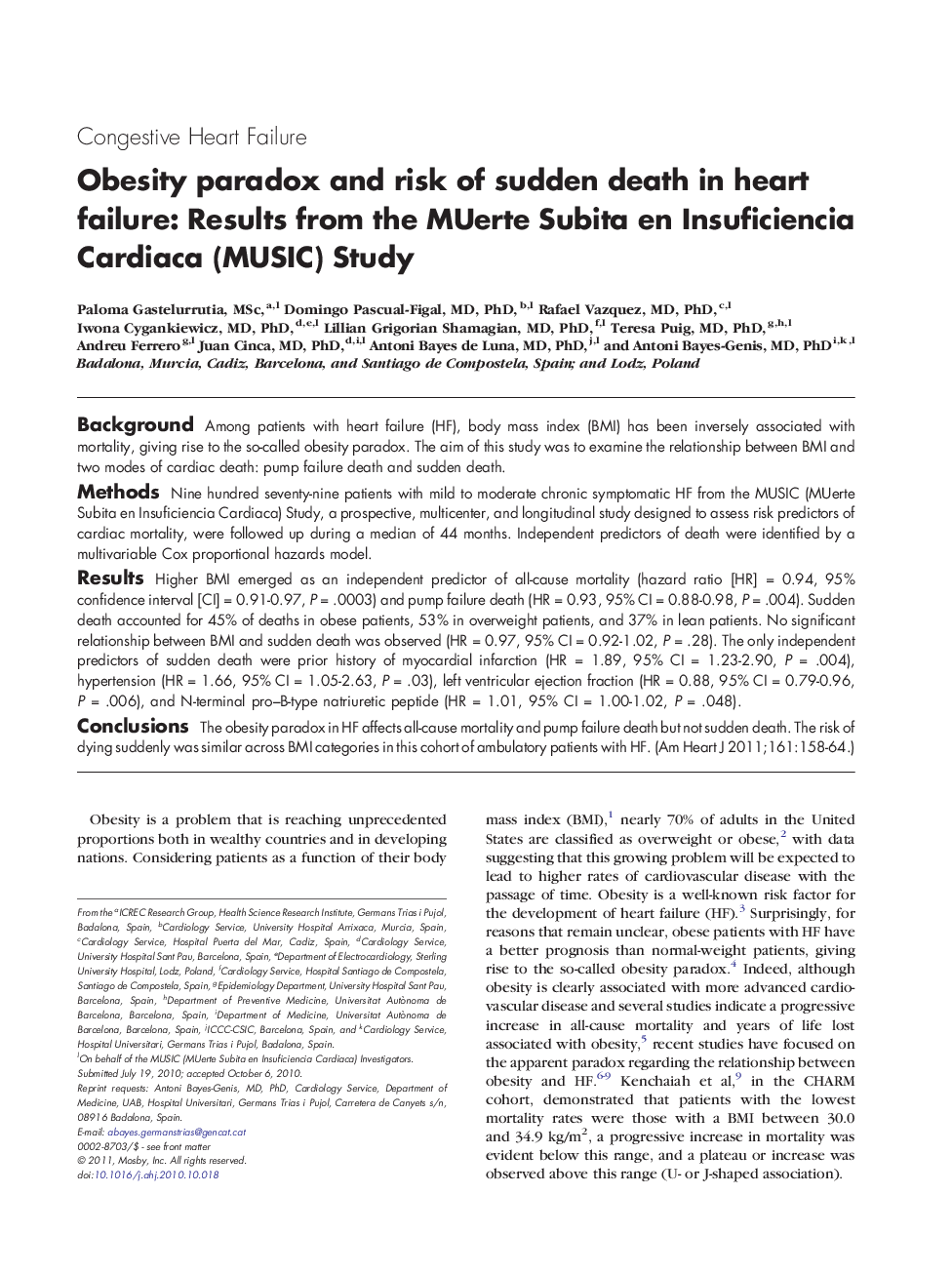| Article ID | Journal | Published Year | Pages | File Type |
|---|---|---|---|---|
| 2849600 | American Heart Journal | 2011 | 7 Pages |
BackgroundAmong patients with heart failure (HF), body mass index (BMI) has been inversely associated with mortality, giving rise to the so-called obesity paradox. The aim of this study was to examine the relationship between BMI and two modes of cardiac death: pump failure death and sudden death.MethodsNine hundred seventy-nine patients with mild to moderate chronic symptomatic HF from the MUSIC (MUerte Subita en Insuficiencia Cardiaca) Study, a prospective, multicenter, and longitudinal study designed to assess risk predictors of cardiac mortality, were followed up during a median of 44 months. Independent predictors of death were identified by a multivariable Cox proportional hazards model.ResultsHigher BMI emerged as an independent predictor of all-cause mortality (hazard ratio [HR] = 0.94, 95% confidence interval [CI] = 0.91-0.97, P = .0003) and pump failure death (HR = 0.93, 95% CI = 0.88-0.98, P = .004). Sudden death accounted for 45% of deaths in obese patients, 53% in overweight patients, and 37% in lean patients. No significant relationship between BMI and sudden death was observed (HR = 0.97, 95% CI = 0.92-1.02, P = .28). The only independent predictors of sudden death were prior history of myocardial infarction (HR = 1.89, 95% CI = 1.23-2.90, P = .004), hypertension (HR = 1.66, 95% CI = 1.05-2.63, P = .03), left ventricular ejection fraction (HR = 0.88, 95% CI = 0.79-0.96, P = .006), and N-terminal pro–B-type natriuretic peptide (HR = 1.01, 95% CI = 1.00-1.02, P = .048).ConclusionsThe obesity paradox in HF affects all-cause mortality and pump failure death but not sudden death. The risk of dying suddenly was similar across BMI categories in this cohort of ambulatory patients with HF.
